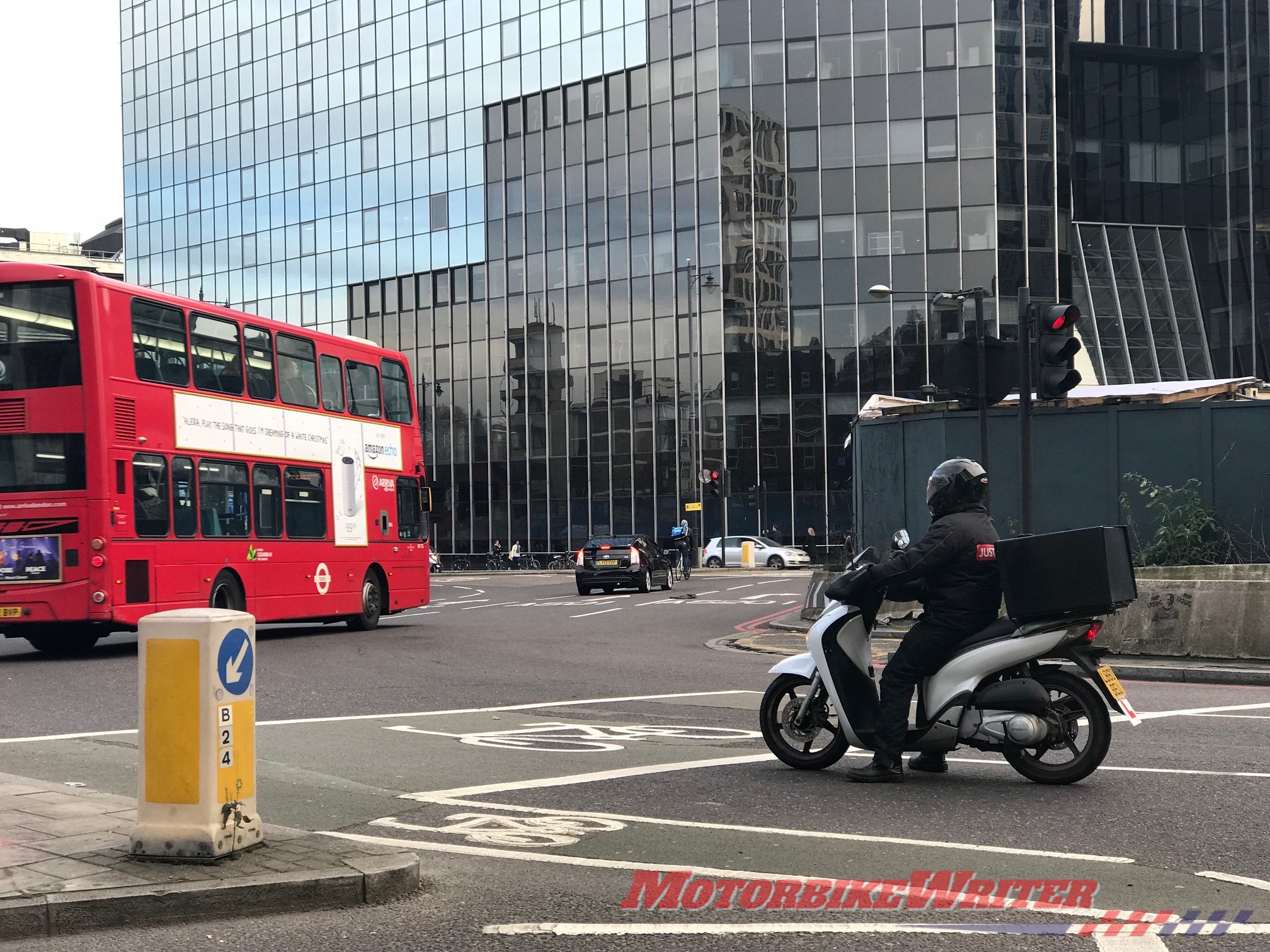Belgium, which recognised the advantages of motorcycle commuting, may soon ban motorcycles from the Brussels CBD.
In 2011, the Belgian Leuven Transport and Mobility study found if 10% of all private cars were replaced by motorcycles, it would reduce traffic congestion by 40%.
However, the Belgian environment department is now considering banning motorcycles from Brussels because they don’t comply with the latest emissions regulations. However, they move to Euro5 targets from next year.
It’s a worrying development as governments around the world consider banning motorcycles or applying CBD congestion taxes.
CBD taxes and bans
Earlier this month, Melbourne renewed calls for a CBD congestion tax, but now the plan is to include motorcycles and scooters.
It’s not alone as cities around the world have introduced or are introducing congestion charges and bans on motorcycles not only to reduce traffic congestion but also air pollution:
- Singapore has road-user charges in a CBD zone resulting in a 20% reduction in delays and plans to ban pre-2003 motorcycles throughout the city in 10 years;
- Milan’s Ecopass charges all vehicles entering a designated traffic restricted zone and bans old cars and bikes that do not meet set emissions standards;
- A cordon charge in Stockholm has led to 24% fewer commuter trips by car (motorcycles and scooters are exempt), with most people switching to public transport and Gothenburg following the same example;
- China and Brazil are considering congestion charges in various cities;
- Oregon, USA, has trialled a voluntary pay-per-mile distance charge resulting in a 22% drop in traffic in peak hours and a 91% approval by participants; and
- London’s Low Emissions Zone charge has helped stabilise traffic congestion over the past decade despite population growth of 1.3 million. Motorcycles, scooters and electric vehicles are exempt, but from next month some older bikes will cop a £12.50 daily fee to access the new London Ultra Low Emissions Zone.
Belgian waffle
The Belgian move follows recent reports in France and LA that point out that motorcycles have higher emissions levels than cars.
That’s true as cars are now on Euro6 and motorcycles are Euro4, moving to Euro 5 from January.
However, those reports ignore several issue:
- The fact that motorcycles and scooters use less fuel especially in traffic where they flow more freely and than cars;
- Motorcycles are only a small proportion of the CBD traffic population; and
- Sales of emission-free electric motorcycles and scooters are increasing at about 40% in Europe.
Such a short-sighted proposal should be seen as an indiscriminate attack on a legitimate and effective means of transport.



